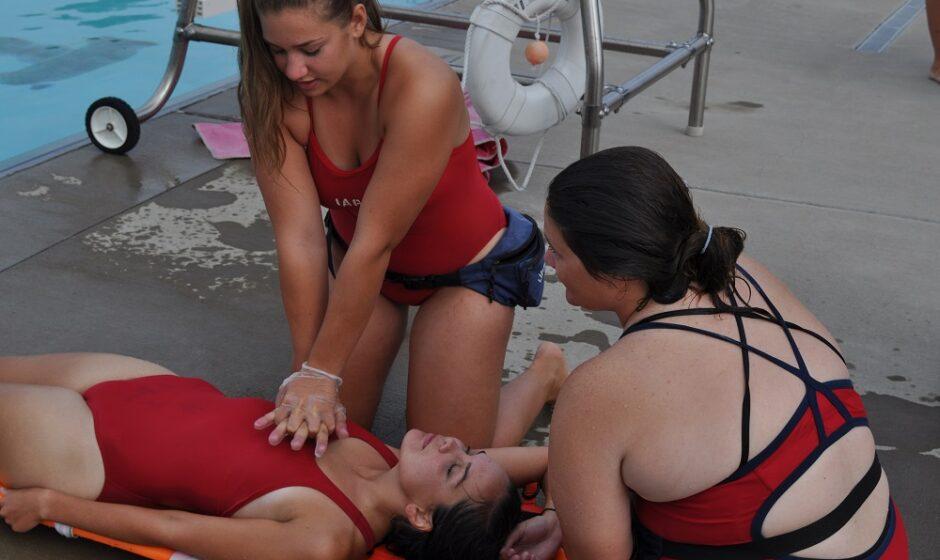Notifications

7 minutes, 1 second
-8 Views 0 Comments 0 Likes 0 Reviews

When summer rolls around and teens look for meaningful, rewarding jobs, lifeguarding often tops the list. It’s more than just sitting by a pool — it’s a role that requires serious training, responsibility, and maturity. If you're a parent considering lifeguard training for your teen, here's what you need to know to ensure they’re well-prepared and safe.
While being a strong swimmer is a basic requirement, lifeguard training goes far beyond swimming laps. Teens learn a wide range of lifesaving skills such as water rescue techniques, CPR (Cardiopulmonary Resuscitation), AED (Automated External Defibrillator) usage, and first aid. They are trained to handle emergencies calmly and effectively, often under pressure.
Why it matters: Parents should ensure their teen understands the seriousness of the role. This isn't a passive summer job — it's one where lives can depend on quick thinking and solid skills.
Most lifeguard training programs require participants to be at least 15 years old. Additionally, there’s usually a swim test at the beginning of the course. This test may include swimming a certain distance, retrieving a brick from the bottom of the pool, and treading water without using hands.
What to do: Help your teen prepare by having them practice their swimming skills beforehand. If they’re unsure, consider enrolling them in a pre-training swim course.
Lifeguard training courses typically last between 20–30 hours, which may be spread over a few days or weeks. The training involves classroom instruction, videos, hands-on practice, and final assessments including both written and physical tests.
What parents need to consider: Make sure your teen can commit the necessary time to complete the training. Missing any part of the course could mean they won’t pass.
Upon successful completion of the training, teens receive certifications in lifeguarding, first aid, CPR, and AED. These certifications are generally valid for two years and are required by most employers before hiring a lifeguard.
Important to know: Ensure that the certification your teen receives is nationally recognized. This will improve their chances of employment and ensure the training meets safety standards.
Lifeguarding demands high levels of concentration, maturity, and the ability to respond to emergencies without hesitation. Teens must be prepared to enforce rules, deal with difficult patrons, and stay alert for long periods — often in the heat.
Parental role: Talk to your teen about the responsibility that comes with this job. It’s important they feel confident and ready to act if needed. Emotional readiness is just as important as physical ability.
Teens are trained to ensure the safety of others, but their own safety is equally important. Lifeguarding involves exposure to the sun, long hours, and at times, stressful scenarios. Training includes self-care practices such as hydration, proper sun protection, and knowing when to take breaks.
What parents can do: Encourage your teen to prioritize their well-being. Provide them with proper gear like water-resistant sunscreen, polarized sunglasses, and a reusable water bottle.
Some lifeguard jobs may require employees to be covered under liability insurance, especially in private settings. Others may be employed by municipal or corporate facilities that provide coverage.
What to ask: Parents should inquire about insurance policies, workplace safety protocols, and supervision standards at potential job sites.
Lifeguarding can open doors to other leadership roles such as swim instructor, pool manager, or aquatic supervisor. Teens also gain valuable life skills including responsibility, leadership, communication, and teamwork.
Long-term benefit: Lifeguarding looks great on college applications and resumes. It shows dedication, maturity, and a commitment to public safety.
Certifications aren’t permanent. Lifeguards must renew their training every few years, which helps keep their skills sharp and updated with current safety protocols and techniques.
How parents can support: Encourage your teen to keep track of expiration dates and consider advanced training opportunities like waterpark or waterfront lifeguarding if they plan to continue.
Not all programs are created equal. Look for training that includes comprehensive instruction, hands-on learning, experienced instructors, and updated equipment. Avoid courses that promise fast certification without proper assessments.
Checklist for parents:
Verify instructor credentials.
Check course reviews or testimonials.
Confirm curriculum includes CPR, AED, and First Aid Training.
Ask about recertification policies.
Lifeguard training is an excellent path for teens seeking a rewarding and impactful job. It teaches them vital life skills, builds confidence, and promotes responsibility. As a parent, being informed about the training process, expectations, and ongoing requirements will help your teen make the most of this opportunity and stay safe while protecting others.
By guiding your teen through the preparation and understanding what the training entails, you’re not only helping them succeed in the role — you’re helping them grow as responsible young adults.

